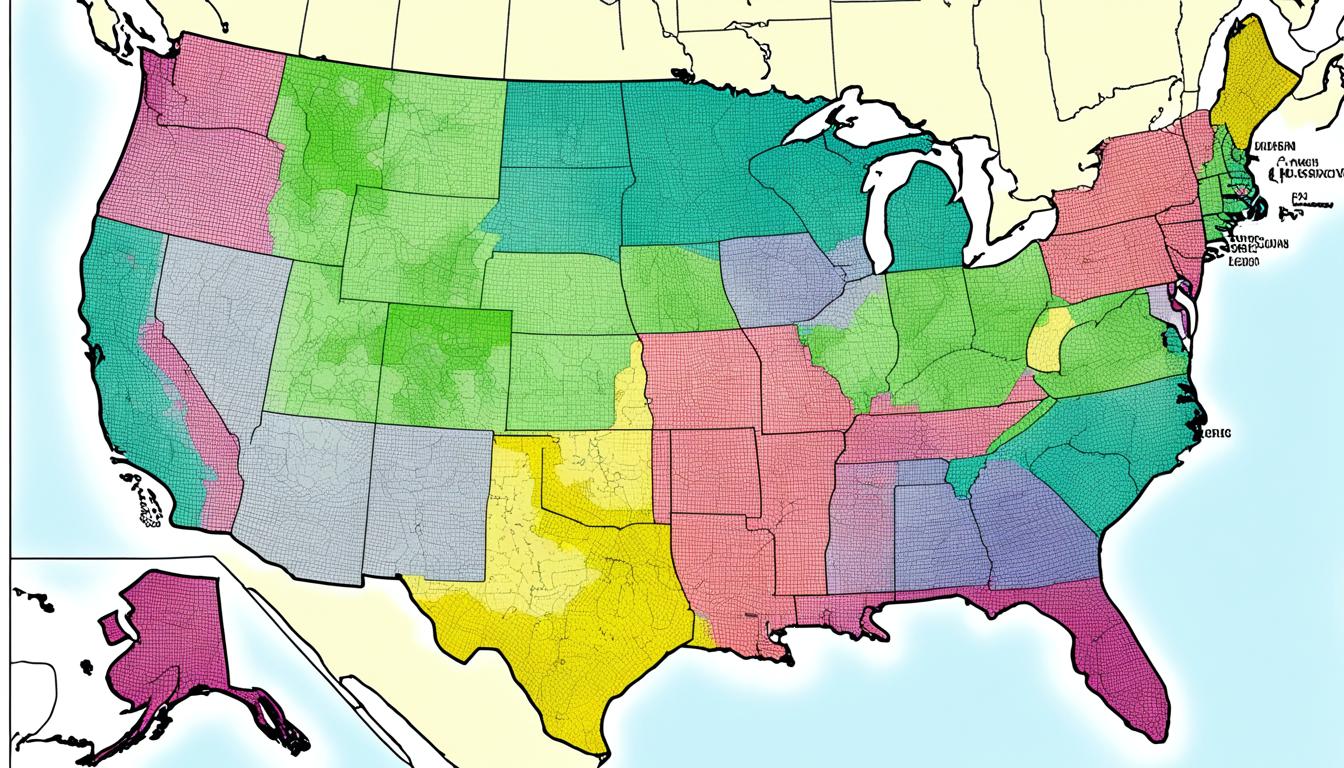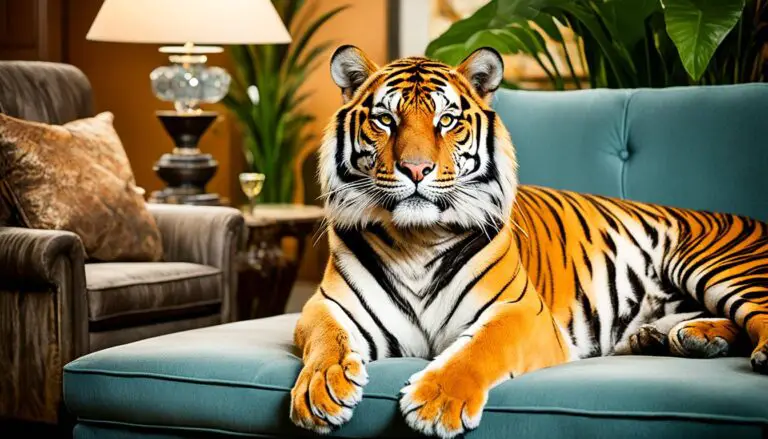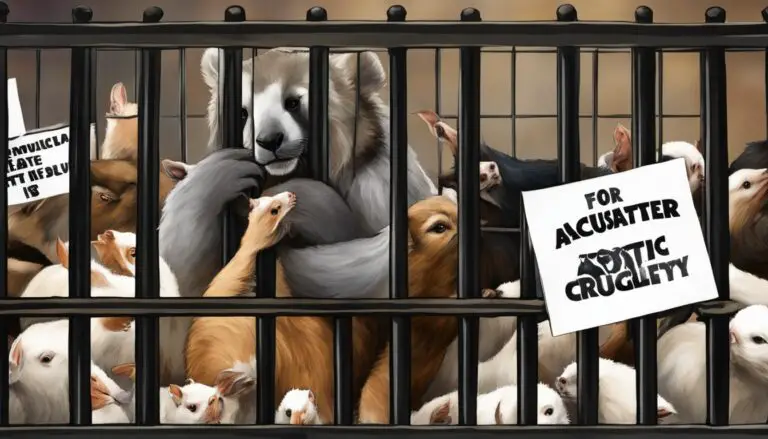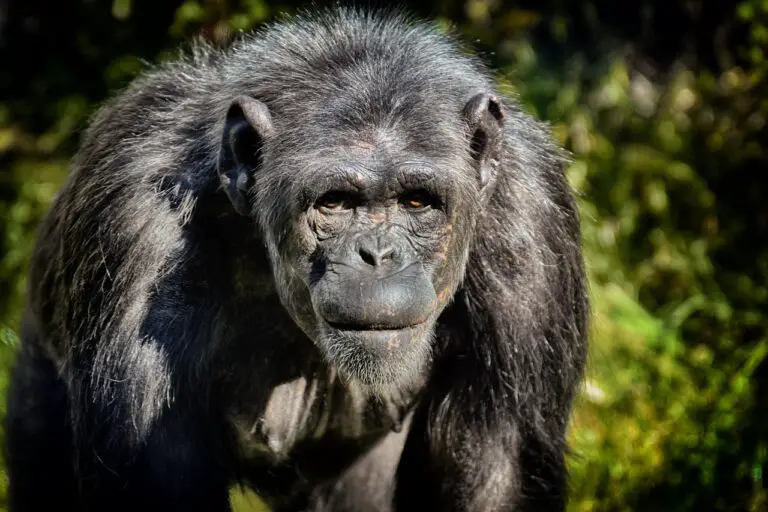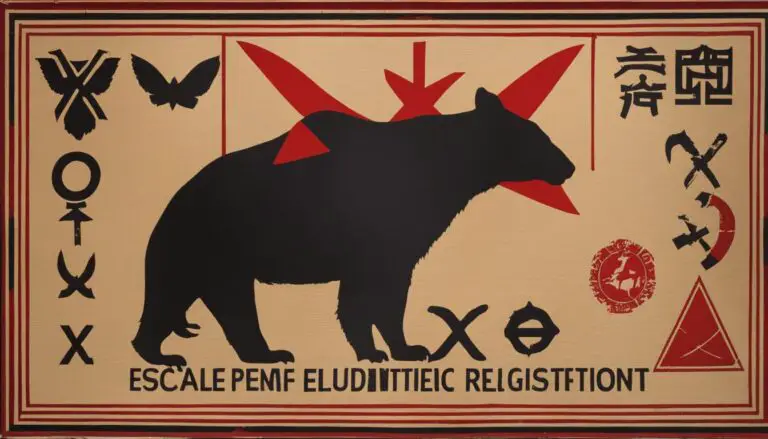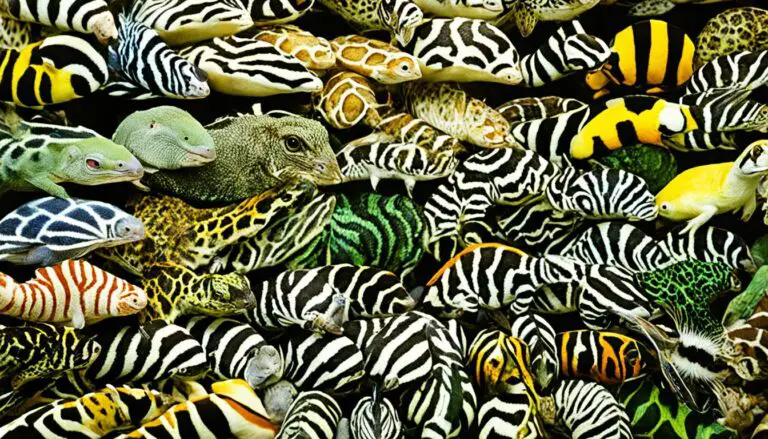Navigating Exotic Pet Zoning Laws in the US
Exotic pets can provide unique companionship and bring joy to our lives. However, before bringing home that adorable big cat or fascinating reptile, it is essential to understand the exotic pet zoning laws in the United States. These laws encompass the regulations, restrictions, and legal requirements for owning exotic animals.
Each state in the US has its own set of laws pertaining to exotic pet ownership, with variations in bans, licensure schemes, and partial bans. Familiarizing yourself with these laws ensures you comply with local regulations and enjoy the company of your exotic pet within the legal framework.
Key Takeaways:
- Exotic pet zoning laws in the US vary across different states.
- Some states implement comprehensive bans on private ownership of certain exotic animals.
- Other states have partial bans, prohibiting specific animal species.
- Some states require individuals to obtain licenses or permits to own exotic pets.
- It is crucial to understand and comply with these laws for responsible exotic pet ownership.
Comprehensive Bans on Exotic Pet Ownership
Currently, 20 states in the US have implemented comprehensive bans on private ownership of certain exotic animals. These bans serve to protect both the public and the animals themselves by prohibiting the ownership of species considered to be dangerous or unsuitable for private possession. Examples of such states include California, Georgia, and Hawaii.
Comprehensive bans classify specific animals, such as wild cats, large non-domesticated carnivores, reptiles, and non-human primates, as “dangerous animals.” These classifications effectively restrict private ownership of these species. In some cases, the laws may outlaw the ownership of wild or exotic animals entirely, while in other instances, individuals may be able to obtain licenses for non-pet-related purposes such as research or educational facilities.
By implementing comprehensive bans, states aim to prevent public safety risks and protect the welfare of these exotic animals. These regulations help ensure that only qualified professionals or institutions can responsibly care for and handle these unique creatures.
To better understand the impact of comprehensive bans, let’s take a look at some examples of states with these strict regulations:
| State | Type of Ban | Prohibited Exotic Animals |
|---|---|---|
| California | Comprehensive ban |
• Wild cats • Large non-domesticated carnivores • Reptiles • Non-human primates |
| Georgia | Comprehensive ban |
• Wild cats • Large non-domesticated carnivores • Reptiles • Non-human primates |
| Hawaii | Comprehensive ban |
• Wild cats • Large non-domesticated carnivores • Reptiles • Non-human primates |

These comprehensive bans play a vital role in ensuring the safety of both the public and the exotic animals themselves. By limiting private ownership of certain species, states are taking important steps to prevent potential dangers associated with unregulated exotic pet ownership.
It is crucial for potential exotic pet owners to be aware of the regulations in their respective states to avoid legal consequences and guarantee the ethical treatment of these unique creatures.
Partial Bans on Exotic Pet Ownership
In the United States, there are thirteen states that have implemented partial bans on exotic pet ownership. These bans specifically target and prohibit the ownership of certain listed animals, while allowing for the possession of other non-traditional and non-domesticated pets. This approach ensures that individuals can still enjoy the companionship of unique and exotic animals, while also promoting responsible pet ownership and prioritizing public safety.
Under the partial bans, each state has its own set of regulations and restrictions regarding which animals are prohibited and which are allowed. For instance, one state may allow the ownership of small primates, such as marmosets or tamarins, while prohibiting the ownership of larger carnivores like lions or tigers. Another state may permit the ownership of specific reptile species, such as ball pythons or bearded dragons, while banning the possession of venomous snakes or crocodilians.
These partial bans on exotic pet ownership strike a balance between the preservation of individual freedoms and the need to protect both humans and animals. They represent a middle ground approach, acknowledging that not all exotic pets pose the same level of risk to public safety. By focusing on specific animal bans, these states can regulate and control the ownership of potentially dangerous species, while still enabling responsible individuals to enjoy non-traditional pets that are manageable and pose minimal risk.
Examples of States with Partial Bans
| State | Specific Animal Bans |
|---|---|
| Florida | Bans ownership of large constrictor snakes and certain primates |
| Indiana | Prohibits ownership of large carnivores and non-human primates |
| Tennessee | Bans possession of big cats and certain venomous snakes |
These examples demonstrate the diversity of specific animal bans imposed by states with partial bans on exotic pet ownership. The exact animals prohibited may vary, but the overall goal remains consistent—to ensure responsible ownership and reduce potential risks associated with exotic pets.

Licensure Schemes for Exotic Pet Ownership
Private ownership of exotic animals in the United States is permitted in fourteen states through the implementation of licensure or permit schemes. These programs aim to ensure responsible ownership and promote the safety and welfare of both the animals and the community. Individuals who wish to own exotic pets in these states must fulfill certain legal requirements, including:
- Registration: Prospective exotic pet owners are required to register with the state authorities. This process allows for better oversight of exotic animal ownership and helps in maintaining a record of individuals who own these unique pets.
- Satisfactory conditions: As part of the licensure scheme, owners must prove that they can provide suitable living conditions for their exotic pets. This typically involves demonstrating adequate enclosure space, appropriate nutrition, and access to veterinary care.
- Fee payment: A fee may be required to obtain an exotic pet permit or license. This cost helps fund the administration and enforcement of regulations related to exotic animal ownership.
- Liability insurance: Many states with licensure schemes also require exotic pet owners to maintain liability insurance. This coverage helps protect both the owner and the public in the event of an incident involving the exotic animal.
The following states have licensure schemes in place for exotic pet ownership:
| State | Exotic Pet Licensure Scheme |
|---|---|
| Arizona | Licensure required for owning exotic pets |
| Delaware | Permit required for exotic pet ownership |
| Ohio | Licensure scheme for exotic animal owners |
These states, along with others that have implemented licensure schemes, strive to strike a balance between allowing individuals to own exotic pets and ensuring proper care and safety measures are in place. By establishing these regulations, they aim to protect both the exotic animals themselves and the communities in which they reside.
Conclusion
In conclusion, prospective exotic pet owners in the United States need to be aware of and comply with the various zoning laws and regulations that govern the private ownership of wild or exotic animals. The laws differ from state to state, with some states implementing comprehensive bans, partial bans, licensure schemes, or miscellaneous regulations. It is essential to understand the specific laws in your state to determine the legal requirements for owning an exotic pet and ensure compliance with local regulations.
Responsible ownership is crucial when it comes to exotic pets. By following the necessary laws and regulations, individuals can ensure the well-being of the animals and the safety of the community. It is important to remember that exotic animals have specific needs and may require specialized care. Before considering owning an exotic pet, individuals should thoroughly research the species they are interested in and ensure that they can provide a suitable environment and meet the animal’s unique requirements.
Compliance with local regulations is not only a legal obligation but also a moral responsibility. By adhering to these laws, exotic pet owners contribute to the conservation of endangered species and the prevention of invasive species introduction. It is crucial to prioritize the welfare of the animals and work towards maintaining a balance between responsible exotic pet ownership and the preservation of natural ecosystems.
FAQ
What are exotic pet zoning laws?
Exotic pet zoning laws are regulations that govern the ownership and keeping of wild or exotic animals as pets and vary across different states in the US. These laws determine which animals can be owned, under what conditions, and whether certain species are prohibited altogether.
How do exotic pet zoning laws differ across the United States?
Exotic pet zoning laws differ across the United States, with each state implementing its own regulations. Some states have comprehensive bans on private ownership of certain exotic animals, while others have partial bans that specify which species are prohibited. Additionally, some states require individuals to obtain licenses or permits to own exotic pets.
Which states have comprehensive bans on exotic pet ownership?
Some examples of states with comprehensive bans on exotic pet ownership include California, Georgia, and Hawaii. These bans typically prohibit the ownership of wild cats, large non-domesticated carnivores, reptiles, and non-human primates as pets.
What are partial bans on exotic pet ownership?
Partial bans on exotic pet ownership are regulations that prohibit the ownership of specific exotic animals by statute but do not ban the ownership of all non-traditional, non-domesticated animals. For example, some states may allow the ownership of small primates or certain reptiles but prohibit the ownership of larger carnivores or dangerous species. Examples of states with partial bans include Florida, Indiana, and Tennessee.
Which states permit exotic pet ownership under licensure schemes?
Some examples of states that permit exotic pet ownership under licensure or permit schemes include Arizona, Delaware, and Ohio. These states require individuals seeking to own exotic pets to register with the state, demonstrate satisfactory conditions for the animals’ keeping, pay a fee, and maintain liability insurance.
What should prospective exotic pet owners keep in mind to comply with zoning laws?
Prospective exotic pet owners should research and comply with their local zoning laws and regulations to ensure they are legally allowed to own and keep exotic animals. It is crucial to understand whether a state has a comprehensive ban, partial ban, licensure scheme, or other regulations to determine the legal requirements and responsibilities associated with owning an exotic pet.
Source Links
- https://www.animallaw.info/article/detailed-discussion-exotic-pet-laws-update
- https://www.animallaw.info/content/map-private-exotic-pet-ownership-laws
- https://www.thesprucepets.com/exotic-pet-laws-1238565
Peter Stones is the founder of Exotic Pets Place, the leading online resource for exotic pet care information.
With over 10 years of hands-on exotic pet ownership experience, he is deeply passionate about sharing his expertise to help others properly care for their unusual pets.
When he's not writing extensively researched articles or connecting with fellow exotic pet enthusiasts worldwide, you can find Peter at home tending to his own beloved menagerie of exotic animals.

